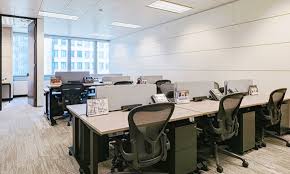Nestled amidst the bustling streets of Seoul, South Korea, lies a dynamic and multifaceted landscape that embodies the essence of modernity and tradition. The Seoul office space epitomizes this juxtaposition, serving as a hub of innovation while retaining its deep-rooted cultural heritage. As the economic epicenter of South Korea, Seoul boasts a vibrant business ecosystem, attracting global enterprises and startups alike. Let’s delve into the intricacies of the Seoul office environment and explore what makes it a unique and thriving workspace.
At the heart of Seoul’s office culture is a commitment to innovation and technology. South Korea’s rapid technological advancement, coupled with its robust infrastructure, has positioned Seoul as a global leader in innovation. The city is home to a myriad of tech giants, from Samsung and LG to innovative startups disrupting various 서울오피 industries. The Seoul office space reflects this ethos of innovation, characterized by sleek, modern designs and state-of-the-art amenities. Open-plan layouts foster collaboration and creativity, while cutting-edge technology enhances productivity and efficiency.
However, amidst the gleaming skyscrapers and modern architecture, Seoul’s office landscape also pays homage to its rich cultural heritage. Traditional Korean design elements, such as wooden accents and paper screens, are seamlessly integrated into contemporary office spaces, creating a harmonious blend of old and new. This fusion of tradition and modernity extends beyond aesthetics, influencing work culture and practices. Confucian principles of respect for hierarchy and collectivism shape interpersonal dynamics, fostering a strong sense of teamwork and loyalty among colleagues.
Seoul’s office culture is also characterized by a strong work ethic and dedication to excellence. Long hours and a relentless pursuit of success are not uncommon in this competitive environment. However, this commitment to hard work is balanced by an emphasis on work-life balance and employee well-being. Many companies offer flexible working hours, remote work options, and comprehensive wellness programs to support their employees’ physical and mental health.
In addition to its thriving business community, Seoul offers a wealth of cultural and recreational opportunities that enrich the office experience. From traditional tea houses and historic palaces to trendy cafes and vibrant street markets, there is no shortage of activities to explore during lunch breaks or after hours. The city’s efficient public transportation system makes it easy to navigate, allowing employees to seamlessly transition between work and leisure.
Furthermore, Seoul’s cosmopolitan nature fosters diversity and inclusivity within its office spaces. With a growing expatriate community and increasing globalization, companies in Seoul embrace diversity as a strength, leveraging different perspectives and experiences to drive innovation and creativity. English proficiency is also widespread, facilitating communication and collaboration with international colleagues and clients.
Despite its many strengths, the Seoul office space is not without its challenges. Rising real estate prices and intense competition for talent pose significant obstacles for businesses, particularly startups and small enterprises. Additionally, navigating the complex cultural nuances of Korean business etiquette can be daunting for foreign companies entering the market. However, with proper planning and strategic partnerships, these challenges can be overcome, and the Seoul office space presents boundless opportunities for growth and success.
In conclusion, the Seoul office space embodies the dynamic fusion of innovation and tradition that defines the city’s identity. From its cutting-edge technology and modern design aesthetics to its deep-rooted cultural heritage and strong work ethic, Seoul offers a unique and thriving workspace for businesses of all sizes. By embracing diversity, fostering collaboration, and prioritizing employee well-being, the Seoul office space continues to evolve as a global hub of innovation and creativity.


Leave a Reply